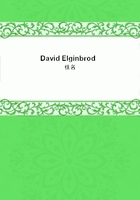
第132章
And, even should misfortunes come, --I, here wha sit, hae met wi' some, An's thankfu' for them yet.
They gie the wit of age to youth;
They let us ken oursel';
They mak' us see the naked truth, The real guid and ill.
Tho' losses, and crosses, Be lessons right severe, There's wit there, ye'll get there, Ye'll find nae other where.
BURNS.
Hugh took his advertisement to the Times office, and paid what seemed to him an awful amount for its insertion. Then he wandered about London till the middle of the day, when he went into a baker's shop, and bought two penny loaves, which he put in his pocket.
Having found his way to the British Museum, he devoured them at his leisure as he walked through the Grecian and Roman saloons. "What is the use of good health," he said to himself, "if a man cannot live upon bread?" Porridge and oatmeal cakes would have pleased him as well; but that food for horses is not so easily procured in London, and costs more than the other. A cousin of his had lived in Edinburgh for six months upon eighteen-pence a week in that way, and had slept the greater part of the time upon the floor, training himself for the hardships of a soldier's life. And he could not forget the college youth whom his comrades had considered mean, till they learned that, out of his poor bursary of fourteen pounds a session, and what he could make besides by private teaching at the rate previously mentioned or even less, he helped his parents to educate a younger brother; and, in order to do so, lived himself upon oatmeal and potatoes. But they did not find this out till after he was dead, poor fellow! He could not stand it.
I ought at the same time to mention, that Hugh rarely made use of a crossing on a muddy day, without finding a half-penny somewhere about him for the sweeper. He would rather walk through oceans of mud, than cross at the natural place when he had no coppers--especially if he had patent leather boots on.
After he had eaten his bread, he went home to get some water. Then, as he had nothing else to do, he sat down in his room, and began to manufacture a story, thinking it just possible it might be accepted by one or other of the pseudo-literary publications with which London is inundated in hebdomadal floods. He found spinning almost as easy as if he had been a spider, for he had a ready invention, and a natural gift of speech; so that, in a few days, he had finished a story, quite as good as most of those that appear in the better sort of weekly publications. This, in his modesty, he sent to one of the inferior sort, and heard nothing more of it than if he had flung it into the sea. Possibly he flew too low. He tried again, but with no better success. His ambition grew with his disappointments, or perhaps rather with the exercise of his faculties. Before many days had passed he made up his mind to try a novel. For three months he worked at this six hours a day regularly. When material failed him, from the exhaustion consequent upon uninterrupted production, he would recreate himself by lying fallow for an hour or two, or walking out in a mood for merely passive observation. But this anticipates.